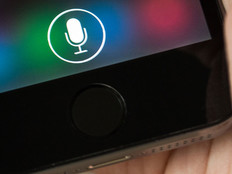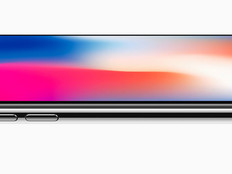Is the iPhone 5 Just a Boring, Minor Upgrade?
Techies are spoiled easily, as we can see from some reactions to the new iPhone 5. You know the ones: “It's not innovation, it's iteration.” Or, “Why can't Apple come up with something new?”
In normal-person (not techie) years, the iPhone hasn’t even reached school age. It first appeared in 2007, only five years ago. Perhaps Steve Jobs couldn't put all the magic he wanted in the first iPhone, but still it shook the market worldwide. Now its sibling, the iPhone 5, has sold more in its first weekend than any phone in history.
Just look at how the iPhone 5 has ratcheted up the tech goodies: The screen has gone from 3.5 inches to 4, giving it 1136x640 pixels in the now ubiquitous 16x9 display format — the same as movies and HDTV.
It also has twice the CPU (with an A6 chip that uses less power), an 8¬-megapixel camera with 1080p HD video (until a few years ago, available only on mucho expensive professional photo equipment), and faster wireless with LTE (we know, Android fans, you had it first).
Another way to look at the iPhone 5 — and Android phones and Windows phones — is this: They are no longer phones that do some extra things. In many ways, they are more like personal digital assistants, or PDAs (remember those?) that also make phone calls. This is exactly why AT&T CEO Randall Stephenson has predicted that service providers will move to data-only plans for cellphones within the next two years — with calls and texts treated as data.
It may be time to start referring to modern mobile phones such as the iPhone 5 as personal computing devices, rather than phones. Just look at a few of the things the iPhone 5 can do (most of which will be matched in short order by Android and Windows phones):
- Siri got all the press with the iPhone 4s, and deservedly so. Layering some artificial intelligence over voice recognition and a huge database, Siri amazed its users. Now that they are used to Siri, some techies are complaining. If you ask Siri, she may be able to tell you how many snide blog posts have been written about her “failures.” But techies in the mobile device business are busy trying to beat Siri at her own game, meaning better versions of AI in our pockets in the future.
- Remember Captain Kirk on Star Trek asking, “Computer, where are we?” Siri can answer, thanks to GPS navigation in the iPhone. Now imagine Siri in iPhone 5 teaming up with IBM's Watson, Wikipedia, and Google — AI plus the sum of modern knowledge in a pocket-sized device.
- Look at the multiple industries that have sprung up around the iPhone as an intelligent sensor base, rather than as a phone: Square's dongle turns an iPhone into a mobile payment device. Glucose meters, blood pressure monitors, EKG monitors, music recorders and hundreds of other devices use the processing power of the iPhone as their foundation. With more horsepower and a bigger screen, don't you think the new iPhone 5 will make an even better home version of an electron-scanning microscope? Just kidding — there's not one of those. But last year someone released a home genome sequencing kit as an iPhone-attached device. Really.
If the iPhone 5 is just a boring iteration, give me more, please.







